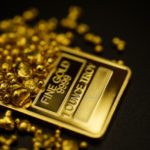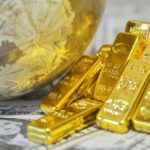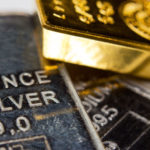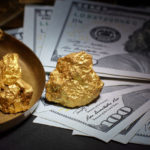Would Brexit really be so good for gold?
THANK YOU FOR POSTING A REVIEW!
Your review was sent successfully and is now waiting for our staff to publish it.
(June 14, 2016 - by David Cottle)
Gold is gaining again, and the looming Brexit vote is one reason why.
Gold is back in something of a sweet spot as markets now doubt that US interest rates will rise anytime soon, and look with trepidation to the UK’s European Union vote in less than two weeks’ time.
Gold futures climbed on Thursday to settle at their highest levels since mid-May. The August contract closed out at $1,272.70 an ounce in New York.
However, one analyst believes that even so seismic a shock as ‘Brexit’ may not offer gold lasting support. Commodities research head Julian Jessop of London-based Capital Economics thinks that the precious metal could indeed benefit from initial uncertainty should the UK vote to leave the EU. But he also thinks that this effect may be neither large nor sustained, enduring only till the Federal Reserve raises interest rates again.
“For a start, very little would actually change straightaway in the event of a vote for Brexit,” Jessop writes in a Friday note.
“The UK is likely to remain a member of the EU for at least another two years, and perhaps longer. This should allow time for negotiations to clear up some of the uncertainties about the economic impact, particularly via the arrangements that would govern UK trade with the remainder of the EU and with the rest of the world.”
However, the market doesn’t have great form with such nuanced argument and, to be sure, many more analysts are reasserting their more bullish calls on the world’s oldest safest haven.
In a note on Friday, ANZ commodity strategist Daniel Hynes suggests two reasons to be bullish. He notes comments this week from Fed Chair Janet Yellen that reduced expectations of aggressive rate hikes this year, and the low-or-negative interest rate policies being pursued in in Japan and Europe.
Last comes the risk aversion prompted by that Brexit vote – which Hynes calla “a real watershed moment” for the precious metal. “It could push gold to $1,400 an ounce, Hynes writes.
These supportive factors should offset some lackluster physical gold demand from top buyers China and India, Hynes adds. In particular, demand in China has been hit by a hike in import duties and a strike by jewelers.
ANZ’s call comes as a number of high-profile investors turned to bearish economic bets. These include billionaire George Soros, who recently bought gold and shares in some miners, the Wall Street Journal reported Thursday.
Gold prices gained more than 16% in the first four months of 2016 and tested the key $1,300 an ounce level in May, but have since reversed a little.
Gold exchange-traded funds (ETFs) have also benefited from strong investor demand. Gold held in ETFs increased by more than 300 tonnes in 2015 after two years of declines and, importantly, continued to rise through gold’s price May price wobble.
“At its current pace, it is highly likely that 2016 can become the biggest year for ETF inflows, surpassing 2009 levels,” adds Hynes.
-
Global Silver Deficit To Rise In 2024 Due To Higher Demand, Lower Supply By
Mint State Gold
April 17 2024
-
GOLD & SILVER MAKE NEW HIGHS AND SEE PROFIT-TAKING - April 2024 CoinStats By
Barry Stuppler
April 15 2024






